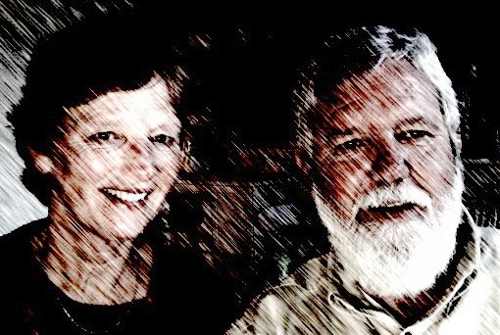- Greg Cornish
- Posted On
Cornish: An open letter to Supervisor Denise Rushing
During your first election campaign I was a Gary Lewis supporter. You were new on the scene and Gary had accomplished a few things I wanted to see happen. As I sat talking to Gary one day at his election camp, some of the things he said about you started to not add up on how I perceive you. His criticisms of you were not being based in politics and I started looking at him differently.
After you won the election I became quite pleased with the way you conducted yourself on the Board of Supervisors and with your constituency. That's why I prefer local politics not based on parties and affiliations, it makes it easier to vote for people with ideas and vote based on performance rather than platforms.
However, recently, for whatever reason, you seem to not be as interested in hearing what our constituency has to say or to be as involved in the community as you have been in the past.
When the marijuana growers from another county moved in behind my house and started putting up 8-foot fences, burying watering tanks, grading, installing solar and gas generators, and taking up residence under tents, you did not seem too concerned when I contacted you about it via an e-mail.
Now when one of your constituents gives you a long detailed letter about what's going on in their neighborhood and looks to you for help, please understand they will become quite concerned when your answer in a reply e-mail is a short, “‘Yes, these things are popping up all over.’ – Denise Rushing.’”
I stared at that short e-mail for a while and thought, “What the heck?” I really wanted an opinion from you on the subject, and even a short- and long-range plan to deal with it. I thought that was how politicians handled their constituents.
Later that day I stopped by at a neighbor’s house and was talking about your e-mail. They said they had also contacted you with little success concerning a next-door neighbor who was moving in junk cars and generally making a wreck out of the neighborhood.
They received a note from you that said, “Well, you can't tell people how to live.” We were both puzzled because this didn't sound like the Denise Rushing that we come to know. The Denise Rushing we knew wanted to clean up blight and make Lucerne and Nice look a lot better.
After the resounding defeat of Measure D the voters sent a clear message to the Board of Supervisors saying, “Deal with this.” Sixty-six percent of your voting public wants you to crush this problem and give minimal legal rights to people growing marijuana for medical purposes. The voting public wants you to greatly limit collectives growing in the area in any legal way you can.
I may be wrong, but when I see you as a part of the advisory committee and listen to your views in the Board of Supervisors meetings, it appears you are trying to take a position somewhere in the middle.
Now I know you've had a rich full life and probably met many people who grow marijuana for purposes other than medicinal. I realize you probably know that these people would love to game the medical marijuana system or do what I call piggybacking for purposes of profit. Nowhere in Proposition 215 or SB420 does it mention profit.
Please, in all your future dealings I'd love to see you toughen up and become the person you were when you are fighting for your constituents in the water problem in Lucerne at the beginning of your Lake County political career. I genuinely like you and think you are a fine person, and would love to see you return to your fighting form and fight for the majority of your constituency while protecting the rights of the medical marijuana user by pushing back hard against the criminal element wanting to join it.
You've noticed in one of the last Board of Supervisors meetings when the people showed up to testify from Middletown and Kelseyville how frightened and disappointed the real constituency of the Board of Supervisors is.
You've learned that most of the people that are growing marijuana in the neighborhoods are exceeding the amount needed to satisfy their medical requirements.
You've learned that many of these people that are growing marijuana are not being good neighbors. You saw evidence of death and destruction to animals and the potential of death and destruction to human beings because of these bad neighbors.
Now as you said, “You can't tell people how to live.” However, if you want people to listen to your suggestions and be good neighbors you can control how they live by limiting with law.
Cut down the number of plants to the bare legal minimum reducing the need for guard dogs that these people can control, the need for weaponry to protect the large amount of plants and the other suggestions that the urgency ordinance offers. Personally, I see no reason we would ever need to change the urgency ordinance. People needing medicinal marijuana never had a supply problem or demand problem previously.
There is a time to negotiate and perhaps you see your position on the advisory board that of a negotiator.
Please remember that you do not have to play the middle; your constituency would like to see you negotiate for us and we believe due to the 66 percent to 34 percent mandate that you hold all of the cards.
Greg Cornish lives in Nice, Calif.









